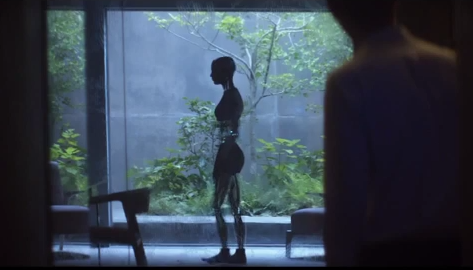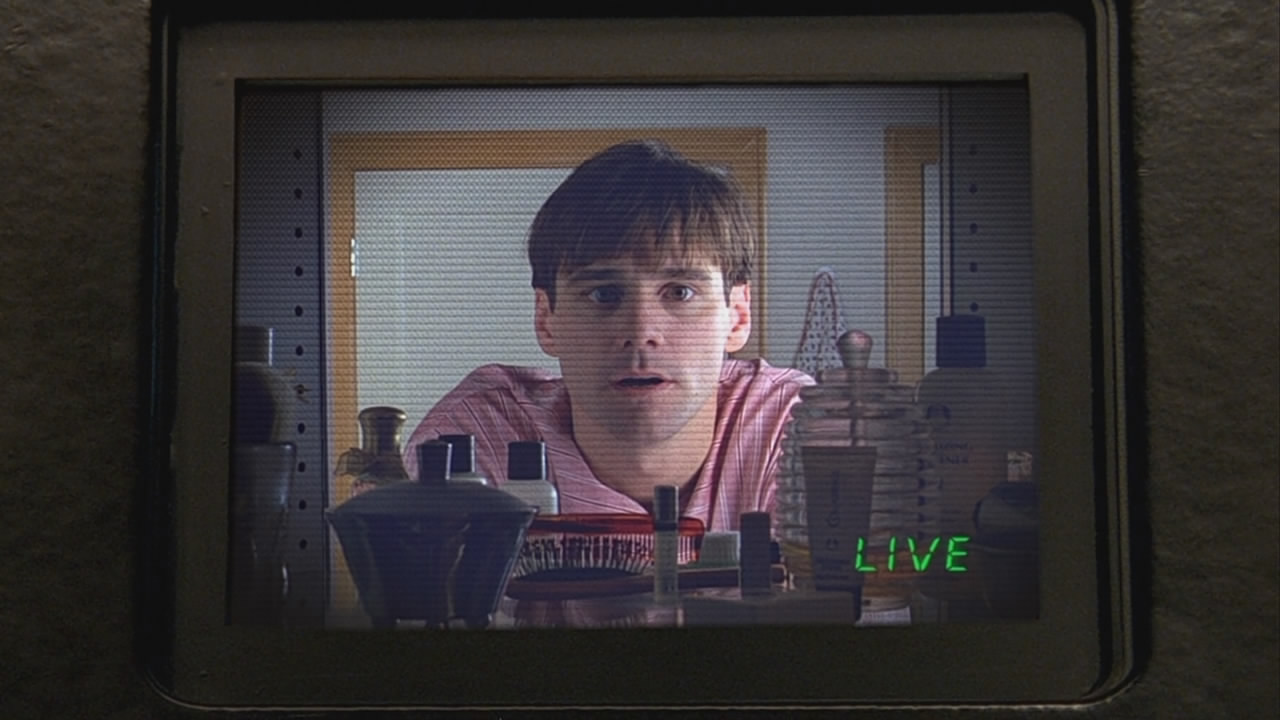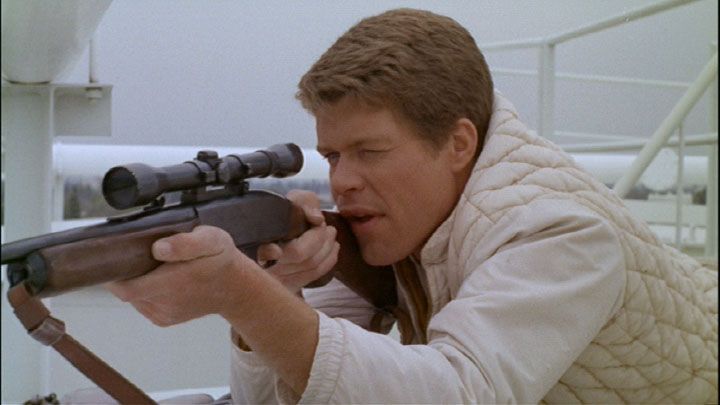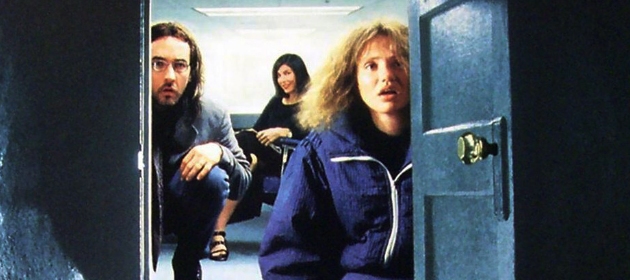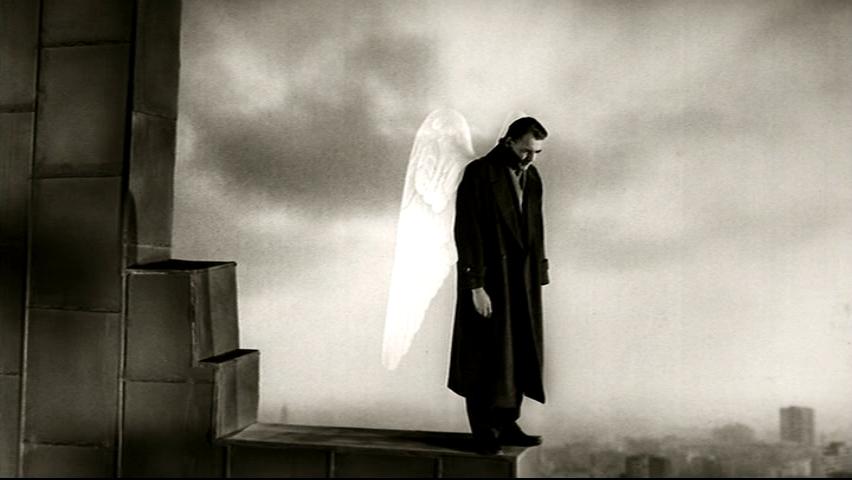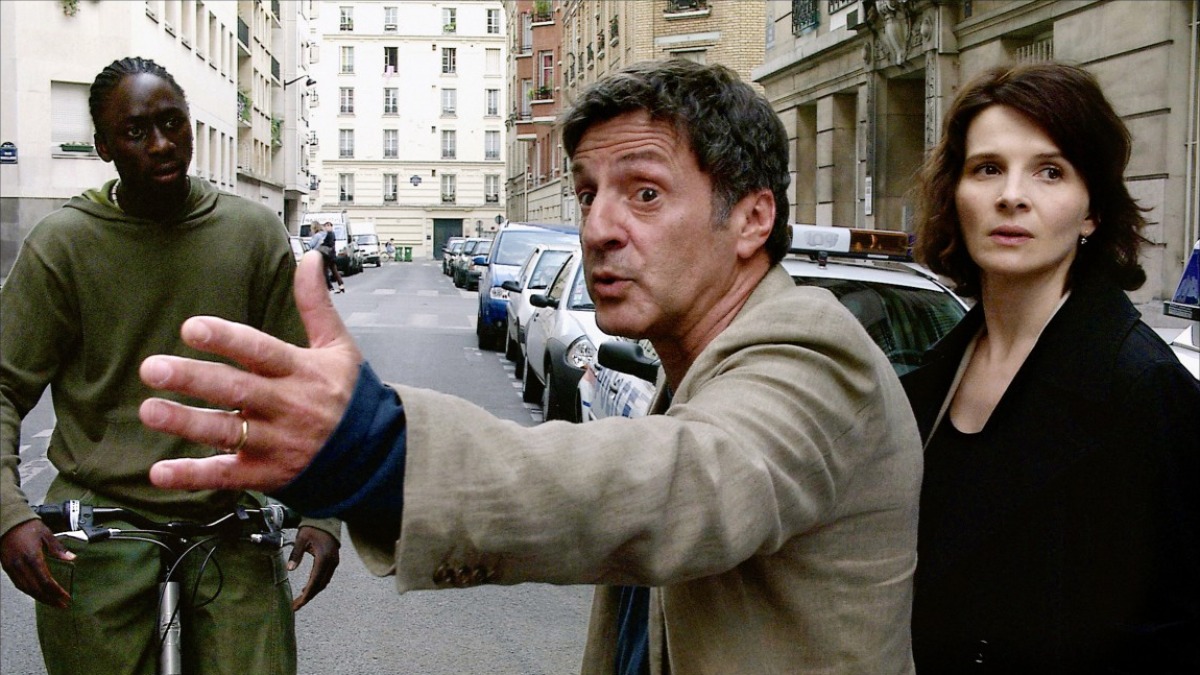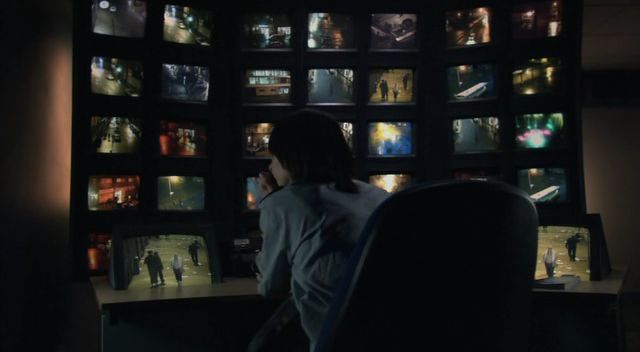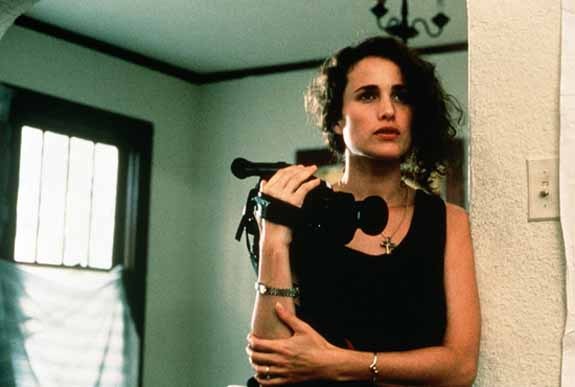17. Ex Machina (2015)
Alex Garland, whose screenwriting credits include 28 Days Later, Never Let Me Go and Dredd, cut his director teeth with another script of his, Ex Machina.
A voyeuristic film, Garland’s philosophical slice of speculative fiction starts with Caleb Smith (Domhnall Gleeson), a programmer for a search engine called Bluebook, who’s invited to meet and stay with it’s illusive CEO, Nathan Bateman (Oscar Isaac) on a new project. This project involves artificial intelligence in the form of Ava (Alicia Vikander), and instantly an objectifying gaze falls upon her.
Nathan has security cameras stashed all over his remote estate, where Caleb and Ava are more prisoners than visitors. Despite the hemmed in limitations that can come with a chamber piece, and Ex Machina is structured as such, the film not only dissects ideas, details how people behave when they know they are being watched, it also articulates a dystopia that’s charitable towards AI but as for humanity, well, not so much.
16. The Truman Show (1998)
Truman Burbank (Jim Carrey), born and raised on camera, has no idea that he’s the star of the most popular TV show in the world, and that the vast majority of people in the world have been following his every movement. For Truman, his life is just a life like anyone else’s. He went to school, he made friends, he hit puberty, had girlfriends, got married, and now goes to work each day, dreaming of better things looming on the horizon.
People who follow the show – which is the most watched show on the planet – are more like voyeurs than viewers, feeling a bond with the character as they’ve suffered as he’s suffered, and come into their own along with him.
Director Peter Weir (Picnic at Hanging Rock) and writer Andrew Niccol (The Host) are both at the top of their game in this brilliantly realized, emotionally involving, farcical satire whose high concept is also quite pensive and engrossing.
15. Targets (1968)
“My kind of horror isn’t horror anymore,” espouses fading fright flick maven Byron Orlok, played brilliantly by Boris Karloff in Peter Bogdanovich’s postmodernist and self-reflexive directorial debut, Targets.
Inspired by the real-life ex-marine Charles Whitman, who scaled a tower in Texas, armed with a sniper rifle, and went on a shocking shooting spree that claimed 14 lives in August, 1966, this intense thriller from Peter Bogdanovich (The Last Picture Show), his first film, established him as a frontrunner in the “New Hollywood”.
Targets makes a complex and chilling commentary on American mythos, gun culture, family values, paranoia, and voyeurism. Shot subjectively and with many extended sequences playing out via the high-powered telescope on all American Bobby Thompson’s (Tim Kelly) assault rifle where anyone and everyone is a potential target.
Bogdanovich taps into perceptible and ad rem fears in a scenario we’ve sadly become all too familiar with in the evening news; mass shootings. Targets is a prerequisite for movie buffs, not just horror fans, and is easily one of the most distinguished debuts from a major American director.
14. Le Samouraï (1967)
Jean-Pierre Melville’s (Army of Shadows) much-praised minimalist noir masterpiece features Alain Delon as the laconic lone wolf hitman and figurative samouraï of the title, Jef Costello. Jef lives by a code of bushido even though he’s a contract killer, and with police on his tale, he rightly assumes they’ve bugged his apartment and have him under surveillance while the crime film that follows in its wake frequently and accurately announces itself as the precursor to the modern American thriller.
Filmmakers from Walter Hill, Jim Jarmusch, Nicolas Winding Refn, Martin Scorsese, to John Woo have championed the film and its impact on their work. Melville’s Le Samouraï is an impossibly cool, steely toned, formalist affair full of atmosphere, void of optimism yet entirely mesmerizing. It’s an artful and austere masterpiece from a major talent.
13. Being John Malkovich (1999)
Screenwriter Charlie Kaufman’s 1999 breakthrough, Being John Malkovich, also the directorial debut of Spike Jonze, is a visionary and highly imaginative film. Exploring themes of identity, celebrity, stalking, spying, and manipulation, in a manner that is fresh and inventive, it’s an odd picture, to be sure, and an unforgettable one.
The offbeat premise of Being John Malkovich is somewhat described in its title, lowly puppeteer Craig (John Cusack) discovers a hidden door while goofing off at his new job.
Venturing through the odd door, he is sucked into a portal that lands him inside the mind of actor John Malkovich (John Malkovich), where Craig can look out John’s eyes and experience what he feels. It’s the ultimate in voyeurism and, as Craig discovers, is oddly addictive.
The film takes many unexpected turns as periphery characters start to enter a shared conscious state in the mind of Malkovich. Coy commentary on communal experience is examined, along with hero worship and gender politics, too.
Amidst all this surreal polemic are loads of laughs, some career best performances from the cast—namely Cameron Diaz—all aggregating to an enduring cult classic that never stops throwing voyeuristic surprises and startling, laugh-out-loud epiphanies right up till the final frame.
12. Wings of Desire (1987)
Set in West Berlin two years ahead of the collapse of the wall, German New Cinema pioneer Wim Wenders offers up one of his most beguiling, beautiful, and ambitious films, Wings of Desire.
The mostly monochrome film, which is jaw-droppingly gorgeous to look at thanks to legendary cameraman Henri Alekan—Jean Cocteau’s celebrated cinematographer on La Belle et la Bête, coaxed from retirement by Wenders—follows two angels, Cassiel (Otto Sander) and Damiel (Bruno Ganz). The angels roam around Berlin, unseen and unheard by humans, and imbued with the ability to listen to the thoughts of anyone and everyone. It’s the ultimate act of voyeurism and it’s never less than completely compelling.
Damiel becomes smitten with a trapeze artist named Marion (Solveig Dommartin) and renounces his immortality in order to return to earth as a human. As a human Damiel loses the ability to eavesdrop on humanity and the film alternates from crisp black-and-white to fanciful Technicolor.
This astonishing film, a high-point in Wenders considerable oeuvre, deservedly won Best Director at Cannes. A masterpiece.
11. Caché (2005)
Caché, the eighth film from Michael Haneke (Funny Games) uses surveillance and voyeurism as mechanisms for anxiety and suspense. Georges (Daniel Auteil) and Anne (Juliette Binoche) Laurent are the middle-aged upper-class French couple under attack by unseen forces out to intimidate. Georges continuously receives unmarked videos of surveillance footage of the exterior of their residence.
As Caché unfolds and the Parisian family at its center weather the storm, a superbly crafted and at times extremely upsetting psychological endurance test results, and one that salts the wounds of Western contempt for the Muslim world as the unseen stalker in the Laurent’s lives may well be an abused figure from Georges past. Or is it? Haneke leaves ample clues for the viewer but he obscures them, too.
It’s rare that a film takes an almost hostile attitude towards the audience by manipulating, provoking, teasing, and then revealing so little. The plot becomes riddled with ambiguities and bourgeois guilt mid the dismay of modern identity. It’s not an easy film to watch, but it’s even harder to forget, and ranks among Haneke’s finest works.
10. Red Road (2006)
Andrea Arnold (Fish Tank) made her feature film debut in 2006 with Red Road, ostensibly her follow-up to her Academy Award winning live-action short, Wasp (2003). Both films are demonstrative of Arnold’s keen observations of working-class realism, a bleak and melancholy milieu shared by the likes of Mike Leigh and Ken Loach, Arnold’s spiritual forebears.
Operating as a very voyeuristic psychodrama, Red Road, which counts among its accolades the Sutherland Trophy from the London Film Festival and the third-place jury prize at Cannes, it also boasts the startling debut of Kate Dickey as Jackie (Filth, Game of Thrones), a widowed surveillance-camera monitor.
Kate works in a deteriorating northern Glasgow housing estate and soon finds herself obsessed with Clyde, a parolee played by Tony Curran (Sons of Anarchy), whose duplicitous behavior has him enmeshed with the inexplicable deaths of Jackie’s child and husband.
Red Road is an atmospheric revenge drama where Arnold pulls no punches in her sour and overly suspicious depictions of modern urban life in Scotland. Not to be missed.
9. sex, lies, and videotape (1989)
Credited with jumpstarting the American independent movie industry, the singularly striking debut from writer-director Steven Soderbergh, Sex, Lies, and Videotape may have been small scale and modest in its execution, but it enticed mainstream audiences and secured a wealth of prizes and box office receipts.
An intelligent, artful, and erotic drama, Videotape racks focus on a quartet of memorable characters, their contemporary and confessional relationships, all while meddling with the sex farce structure in unexpected and unconventional ways.
The ensemble cast is spectacular, especially James Spader (he won Best Actor at Cannes where the film also received the Golden Palm), who’s character, Graham Dalton, is forever filming interviews with women about their sexual experiences and fantasies. Sex, Lies, and Videotape is a frequently funny, painfully honest, emotionally and intellectually lavish film that also manages to be both invigorating and analytical. Essential viewing.
